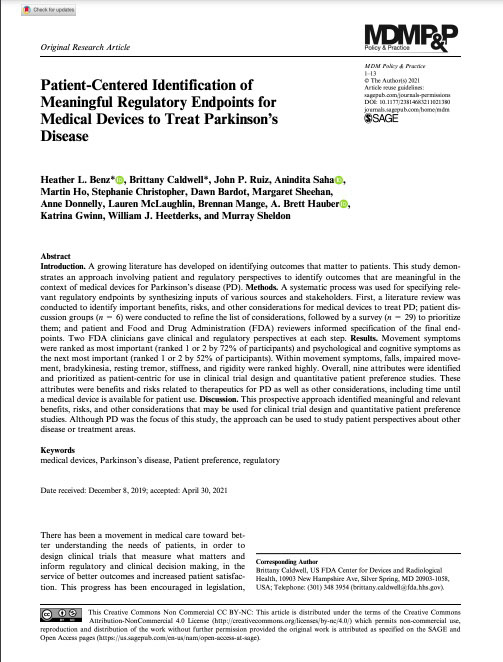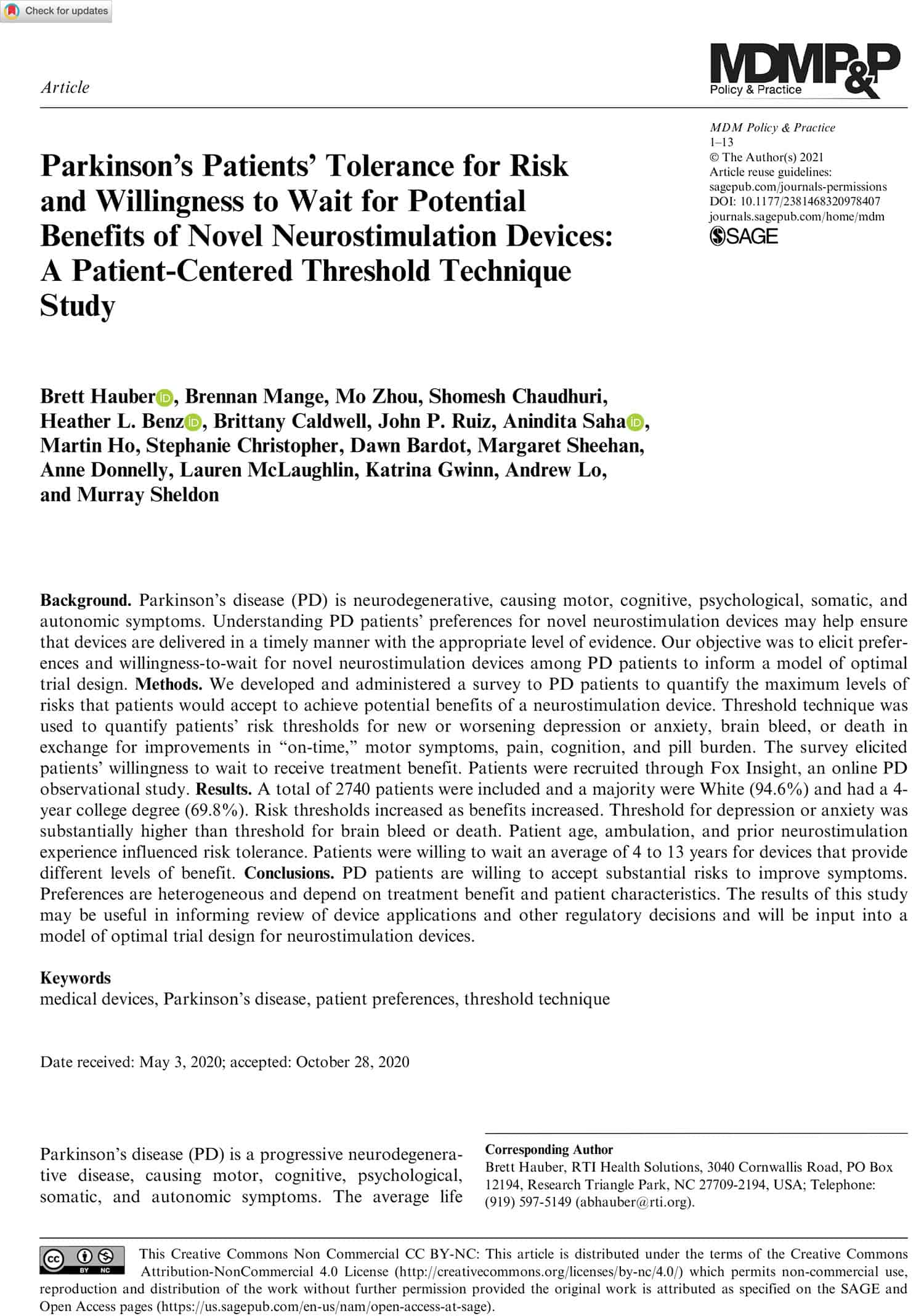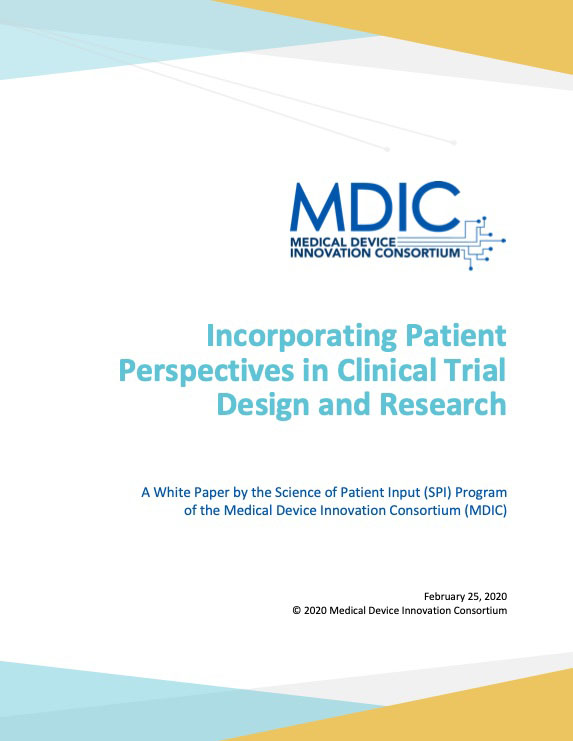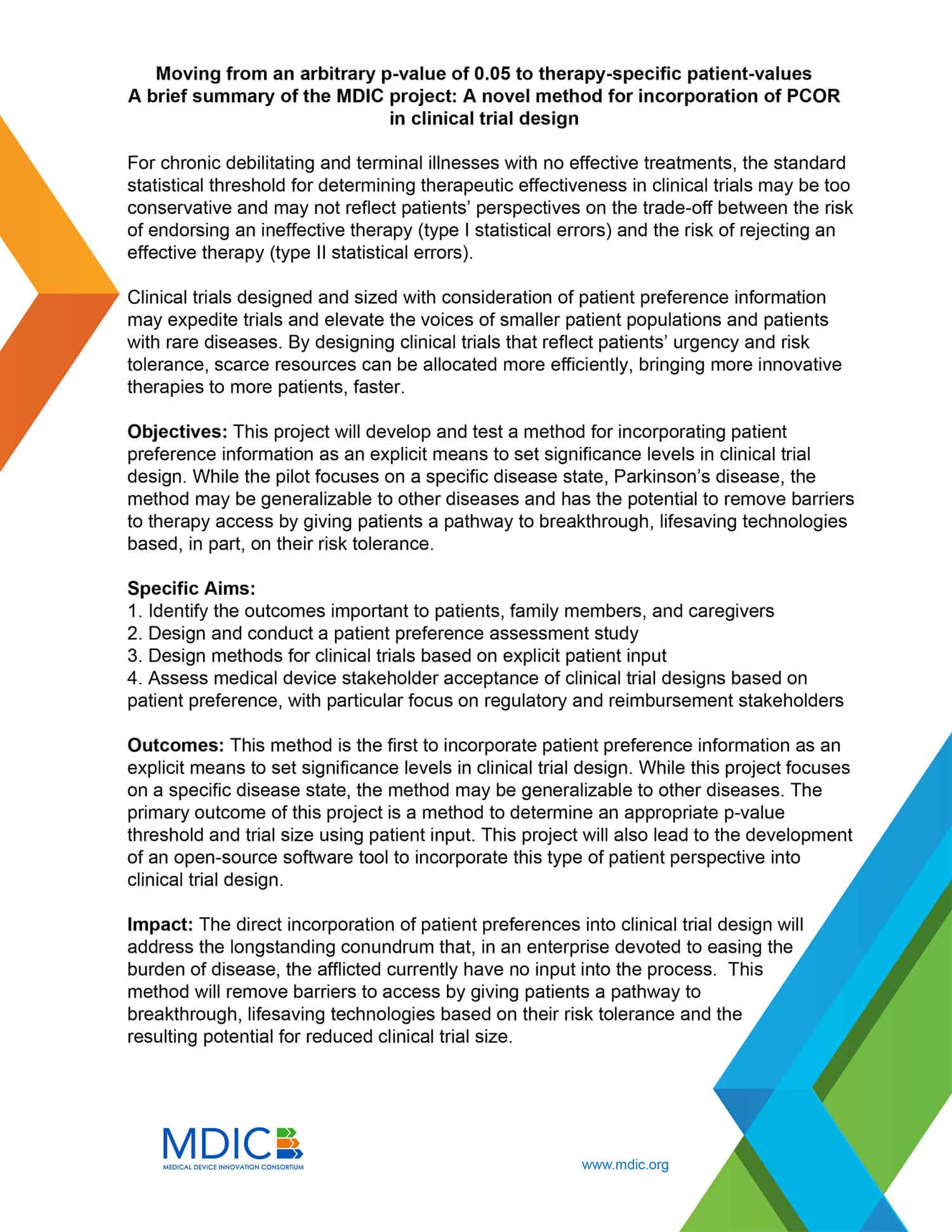For chronic, debilitating, and terminal illnesses with no effective treatments, the standard statistical threshold for determining therapeutic effectiveness in clinical trials may be too conservative and may not reflect patients’ perspectives on the trade-off between the risk of endorsing an ineffective therapy and the risk of rejecting an effective therapy.
Clinical trials designed and sized with consideration of patient preference information may expedite the development process while incorporating patient perspectives. By designing clinical trials that reflect patients’ urgency and risk tolerance, scarce resources can be allocated more efficiently, speeding up progress in bringing forward innovative therapies.
The specific aims of the project focusing on Parkinson’s disease were to:
- Identify the outcomes important to patients, family members, and caregivers
- Design and conduct a patient preference assessment study
- Design methods for clinical trials based on explicit patient input
- Assess medical device stakeholder acceptance of clinical trial designs based on patient preference, with a particular focus on regulatory and reimbursement stakeholders
This project yielded several important outcomes, including incorporation of patient preference information as an explicit means to set significance levels in clinical trial design. While this project focuses on a specific disease state (Parkinson’s disease), the method used could be leveraged to other diseases. Using this method to incorporate patient preferences into clinical trial design will address the longstanding challenge that, in an enterprise devoted to easing the burden of disease, patients often have little or no direct input into the study design process.





